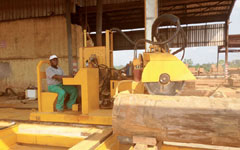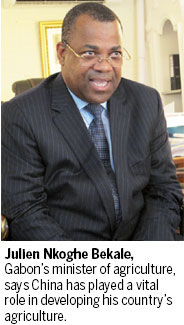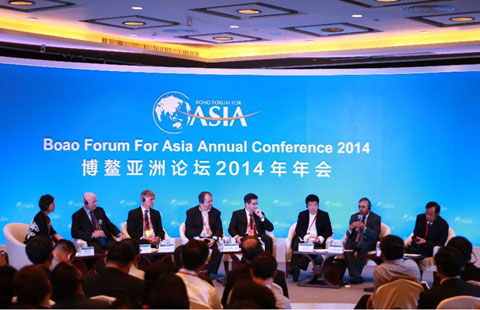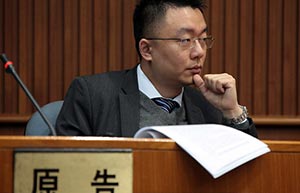Room for growth
By Andrew Moody and Wang Chao (China Daily) Updated: 2014-04-14 07:12Chinese companies face challenging times in West African nation of Gabon
Taking Libreville's main coastal road with palm trees swaying in the Atlantic breeze, one could easily imagine it being an upmarket French resort. Gabon, of which it is the capital, has one of the highest standards of living in sub-Saharan Africa. Its gross national income per capita of $14,090 - putting it firmly in the middle-income bracket - is more than 50 percent higher than that of China's $9,040, according to 2012 World Bank figures.
|
 |
 |
Neither the wealthy ambience of the capital nor the statistics give the full picture, however. Only a minority of the country's 1.5 million citizens enjoy the country's wealth with almost one-third living below the poverty line and 20 percent enduring long-term unemployment.
When you venture inland, the true development state of the country is revealed with no accessible roads and many parts of the densely forested country only accessible by air.
China has had a long association with the country. The late president Omar Bongo visited China 10 times in his 42-year rule. Zhang Dejiang, now chairman of the Standing Committee of the National People's Congress, attended his funeral in 2009.
The new president, Ali Bongo Ondimba, who was elected after his father's death, was educated at the Sorbonne in France and is, however, seen as less Sinophile.
Yet, the two countries have a significant economic partnership. Despite its tiny population, Gabon was still China's 28th largest trading partner in Africa in the first nine months of last year with total trade of $745 million.

In January, the two countries resolved a dispute over future oil rights in the country.
Addax Petroleulm Corp, the biggest overseas subsidiary of Sinopec, agreed a 10-year contract to extract oil at three fields in Tsiengui, Obangue and Autour.
This will deliver to the Chinese company a significant amount of Gabon's output.
The deal ended the prospect of a potential $1 billion legal dispute over future rights in Gabon.
Zhang Yi, chief executive officer of Addax Petroleum, told China Daily in January that the new agreement proved Chinese investment was still welcome in Gabon.
"We have concluded negotiations in a mutually beneficial way. I think this is a sign that our performance has been recognized and Chinese investors have been welcomed by the Gabonese Republic," he says.
The resolution, however, was in contrast to China Machinery Corp's loss of mining rights to the Belinga iron ore deposits in the northeast of the country in December.
The company had acquired the rights in 2006 but they are now expected to go to Australian mining giant BHP Billiton, according to some reports.
|
 |
 |

















